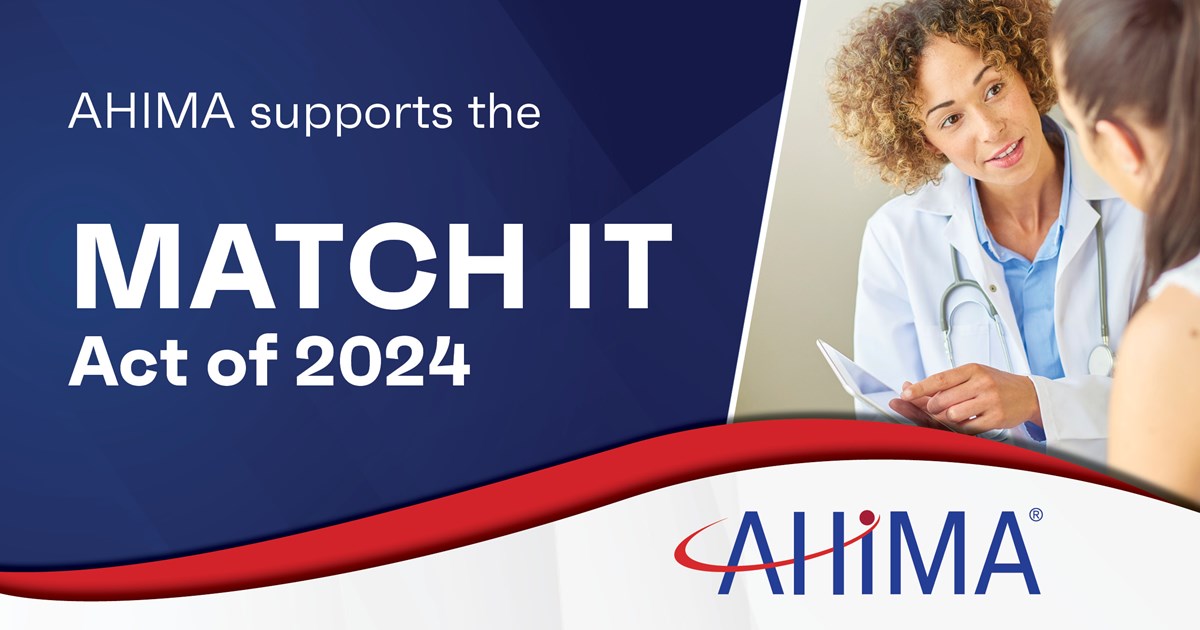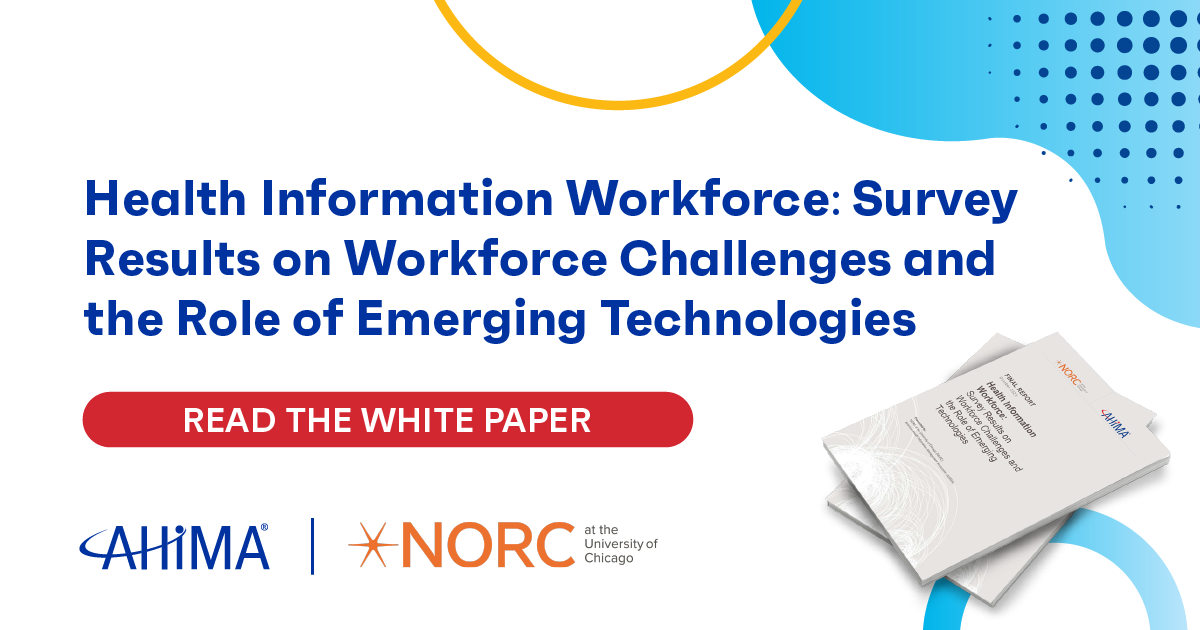The AHIMA Advocacy Agenda
Our mission of "empowering people to impact health®" is rooted in our founder's belief that great possibilities are achieved when we work together toward a common goal.
At AHIMA, our common goal is to transform health and healthcare by connecting people, systems, and ideas. This transformation starts with the most powerful currency for change in the healthcare ecosystem: health information.
The AHIMA 2024 advocacy agenda will leverage our knowledge and expertise of health data and information to influence the public policy environment for the benefit of individuals, communities, clinicians, and the healthcare workforce. Download our agenda to learn more. To read our policy statements, click each statement’s link within our agenda.

Latest News

The AHIMA-Endorsed MATCH IT Act Introduced in the US House of Representatives
Representatives Mike Kelly (R-PA) and Bill Foster (D-IL) have introduced the Patient Matching and Transparency in Certified Health IT (MATCH IT) Act of 2024 into the US House of Representatives. This bill, endorsed by AHIMA and the Patient ID Now coalition, aims to improve patient matching to protect patients’ safety and privacy and create a more interoperable health system. Read the press release and act now.
Upcoming Events

Conference | October 27 - 29, 2024
AHIMA24 Conference Alert: Opening Keynote Speaker Announcement!
Dive into Inspiration! We’re excited to announce that the legendary Diana Nyad, world-renowned athlete, inspirational speaker, and author, will be our opening keynote speaker at #AHIMA24! You won't want to miss Diana's incredible story of perseverance, grit, and triumph that will inspire you to never give up!
June 8, 2023
AHIMA Comments on FY 2024 Inpatient Prospective Payment System (IPPS) Proposed Rule
AHIMA submitted comments to the Centers for Medicare and Medicaid Services (CMS) on the Fiscal Year (FY) 2024 Medicare Hospital Inpatient Prospective Payment System (IPPS) proposed rule. Comments focused on proposed updates to MS-DRGs and the Promoting Interoperability Program.
May 3, 2023
AHIMA Comments on ICD-10-CM Code Proposals
AHIMA submitted comments to the Centers for Disease Control and Prevention/National Center for Health Statistics on ICD-10-CM code proposals discussed at the March ICD-10 Coordination and Maintenance Committee meeting and being considered for implementation on October 1, 2024.
Policy Statements
Downloadable Policy Statements
- Individual Access: Enhance individuals’ electronic, timely, and seamless access to their health information.
- Consumer Engagement: Empower individuals to make better decisions about their own health by using trusted data from traditional and emerging data sources.
- Affordability: Ensure patients have access to timely and accurate information about the cost of healthcare services to make informed care decisions, including information about their expected out-of-pocket costs.
- Privacy: Address privacy and security gaps of HIPAA non-covered entities that collect, access, use, disclose, and maintain electronic health information.
- Cybersecurity and Information Security: Enhance and improve the sharing of cyber threats, risks, and cyber hygiene practices in real-time.
- Behavioral health: Encourage policies that further integrate and coordinate behavioral health information with physical health information.
- Healthcare Reform: Promote the continuity of accurate, timely, and trusted health information regardless of health insurance coverage.
- Data Quality: Advance the completeness, accuracy, and timeliness of health data by influencing the development and maintenance of national and international coding standards.
- Data Integrity: Influence and advance policies that promote the accuracy, consistency, and trustworthiness of health information regardless of its form, origin or application.
- Health Equity: Advocate for the collection, use, and sharing of accurate, unbiased, complete, and standardized health information as an integral part of efforts to reduce and eliminate health disparities and inequities.
- Value-Based Care: Promote new payment and delivery models that leverage accurate, timely, and complete health information—as well as technology—in new and innovative ways.
- Telehealth and Remote Patient Monitoring Technologies: Expand access to care through the use of telehealth and remote patient monitoring technologies, while ensuring the continuity of accurate, timely, and trusted health information and also protecting patient confidentiality, privacy and security.
- Patient Identification: Enhance accurate patient identification to improve patient safety, interoperability, and the appropriate use of workforce resources.
- Integrating Clinical and Administrative Data: Enhance and influence efforts to better integrate clinical and administrative data to improve the patient experience, reduce clinician burden, and potentially reduce costs.
- Interoperability: Champion modern data standards (including application programming interfaces) and related infrastructure to support technical, functional, and semantic interoperability across healthcare.
- Public Health: Advocate for the use of accurate and timely data for public health responses and initiatives while protecting the confidentiality, privacy, and security of an individual’s health information.
- Social Determinants of Health: Promote the collection, access, sharing, and use of social determinants of health (SDoH) to enrich clinical decision making and improve health outcomes, public health, and health inequities in ways that are culturally respectful.
Advocacy & Policy Council
The Advocacy and Policy Council advises our leadership and Board of Directors on critical areas for AHIMA’s strategic engagement in advocacy and public policy that align with our mission and vision.

Introducing Data for Better Health®
Better health and improved health equity are impacted by factors beyond the care a person receives from their provider. Those factors, such as food insecurity, housing status, and transportation needs, are referred to as social determinants of health (SDOH), which significantly affect quality of life, health, and healthcare outcomes.
